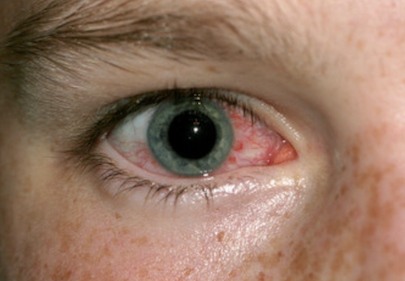Millions of people all over the world suffer from allergy symptoms. Allergy symptoms range from lightly uncomfortable to downright deadly. Caused by the body’s allergic reaction to allergens. Allergens are foreign substances such as pollen, pet dander and food additives that are misinterpreted by the immune system as harmful substances. Skin tests and blood tests can be used to diagnose allergies.
Causes of Allergy symptoms
The immune system performs an important function. It creates antibodies to fight viruses and bacteria. Sometimes, however, the immune system errs. Allergy symptoms are caused by the immune systems erroneous reaction to foreign substances newly introduced to the body. The immune system, perceiving these foreign substances as harmful, creates antibodies to fight and kill them. The next time the body is exposed to that substance, the immune system releases the antibodies it created and causes an allergic reaction. Allergy symptoms are symptoms of that allergic reaction.
Some examples of allergens are:
- milk
- gluten
- pollen
- pet dander
- food
- medicine
- poison ivy
- poison oak
- ragweed
- insect bites
- metal
- mold
- dust
- sunlight
- plants
- flowers
- cosmetic ingredients
- cleaning product ingredients
Examples of Allergy symptoms
Allergy symptoms can manifest as mild, moderate and severe. Mild allergy symptoms do not spread to other parts of the body that have not encountered the allergen. Moderate allergy symptoms can spread to parts of the body that have not been exposed to allergens. Severe allergy symptoms indicate anaphylactic shock and affect the entire body.
Examples of mild symptoms are:
- sneezing
- runny nose
- watery eyes
- coughing
- inflammation of the eye and nose tissues
Examples of moderate symptoms are:
- itching
- stuffy nose
- hives that don’t go away quickly
- difficulty breathing
- conjunctivitis
- rash
- stomach cramps
- gas
- nausea
- headache
Examples of severe symptoms are:
- vomiting
- diarrhea
- inability to breath
- swelling that inhibits breathing
- mental confusion and dizziness
Treatment
Allergy symptoms can be treated with a myriad of medicines and herbs and by avoidance. It is best to contact a physician before trying anything to reduce allergy symptoms.
Some medicines used to treat allergy symptoms are short-acting antihistamines (Claritin), long-acting antihistamines (Allegra and Zyrtec), decongestants (Allegra-D), nasal corticosteroids (Flonase), cromolyn sodium (Nasalcrom) and leukotriene inhibitors (Singulair).
Some natural herbs used to treat allergy symptoms are quercetin, echinacea, goldenseal, stinging nettle, butterbur, eyebright, feverfew and bayberry. Hot spices such as cayenne pepper, cinnamon and ginger can help to thin mucous, also providing relief to allergy symptoms.
Ways to avoid allergy symptoms are to follow allergen-free diets and limit exposure to allergens. Food allergies are normally treated by creating diets that exclude the food that causes the allergic reaction. Frequent vacuuming, using special filters in central heat and air units and keeping pets out of the bedroom and home can greatly reduce contact with allergens.
Learn about allergies what they are and what to do about them!

No Comments